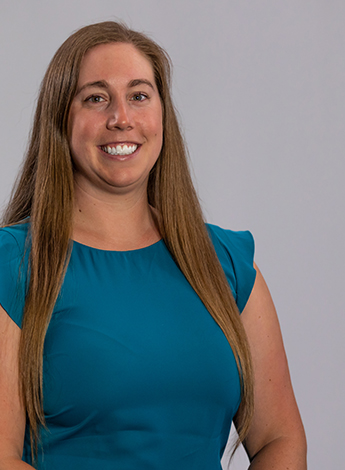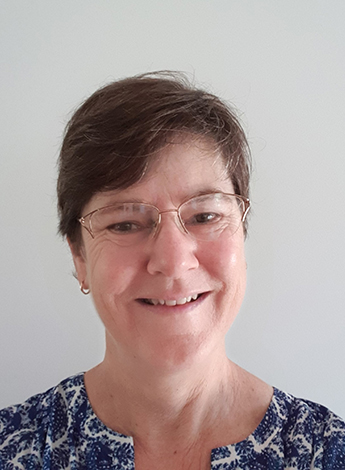
Making the most of mentoring

Jennifer Lohmus was recently recognised as the APA Mentee of the Year, after participating in the APA’s first mentoring program. Here, she and her mentor Dr Sally Hess talk about the benefits of the program.
In early 2022, Jennifer Lohmus APAM, an early career physiotherapist working in private practice in Melbourne, was not sure where her career was headed.
‘I was a bit lost in the physio world.
‘I was thinking about working on some kind of titling pathway, but I wasn’t sure.
‘I had considered going back to school to do my musculoskeletal titling and the master’s program,’ Jennifer says.
A complicating factor was that rather than focusing on just one kind of physiotherapy, Jennifer’s practice has a team of physiotherapists with different specialities working together to manage patients with complex presentations.
‘A patient could have a complex neurological condition plus a lymphatic condition, a cardiorespiratory condition and a musculoskeletal condition.
‘Learning how to compartmentalise and manage that, as a relatively recent graduate, was very hard,’ she says.
So when she signed up for the APA’s mentoring program, she had several goals—to decide whether she wanted to do her musculoskeletal titling and a master’s in physiotherapy and to get some advice on managing more complex presentations.
Jennifer was paired with Dr Sally Hess APAM MACP, an APA Sports and Exercise Physiotherapist with more than 30 years of experience in both private practice and public health and a former lecturer in physiotherapy at the University of Queensland.
Sally is currently a senior consultant physiotherapist at Royal Brisbane and Women’s Hospital as well as at a private practice on the Sunshine Coast.
She applied to be a mentor because she thought her breadth of experience could be useful for mentoring a younger physiotherapist.
‘I do mentoring in a hospital as well, so it was a good professional opportunity for me too.
‘As an older physio, I think it’s important for us to keep learning.
‘It’s good for me to see some of the things that Jen was going through as a younger physio,’ Sally says.
Introduced last year, the APA’s mentoring program is supported by the group Art of Mentoring, which helps match mentors to mentees and provides a framework and plenty of useful resources about the mentoring process.
‘I couldn’t have picked a better mentor for myself than the one that the APA and Art of Mentoring picked for me, so I’m very grateful.
‘They obviously did their homework on the matching program,’ Jennifer says.
In one of the pair’s early mentoring sessions, Sally introduced Jennifer to the type of clinical reasoning chart that she had used with students in the University of Queensland’s Master of Physiotherapy program.
‘I’d never seen anything like that because I’d never done a master’s program.
‘Getting a taste of what that would look like and how to think differently made me feel that, while there are a few things that I’ve haven’t thought about, this seems attainable and achievable,’ says Jennifer.

Jennifer Lohmus joined the mentoring program to get advice on progressing her career
‘It was very helpful, when managing some challenging situations clinically, to look at a complex presentation from a different perspective.
‘It’s something you develop.
‘Thirty years of clinical reasoning, compared to my five, helped to accelerate the process.’
The mentoring sessions moved on to looking at master’s programs, but that identified a big barrier for Jennifer.
As a Canadian working in Australia, she wouldn’t qualify for financial programs like HECS-HELP.
‘That was a huge deterrent for me because paying as an international student isn’t an option.
‘But rather than getting disappointed, we started to look at other things—support with clients who have complex presentations, discussions about barriers in the workplace and opportunities to develop my skills,’ she says.
Those opportunities included applying to work as a team physiotherapist with a local semi-professional ice hockey team.
‘I hadn’t worked in ice hockey at all and during COVID-19 there wasn’t a lot of sport, so I hadn’t really had the opportunity to get involved.
‘I don’t know if I would have necessarily taken it if Sally and I hadn’t had that conversation,’ Jennifer says.
‘Having that support with thinking everything through—what it would involve, how it would look, how to make it a bit easier in terms of changing my clinical documentation, how to change my thinking and what tools I needed—took a lot of the stress and pressure away from doing something completely new, so I could really enjoy it, engage with it and thrive in it.’
The work with the local team has led to further opportunities with state and national ice hockey teams.
‘I basically went from not working in sport at all in the past year and a bit to working at a national level, which is something I would not have foreseen happening so soon.
‘Maybe I never would have gotten to this level had I not had a bit of support to get there.’
Sally says that as a mentor, she helped Jennifer work through her options.
‘With the experience that I’ve had as a sports and exercise physio and working with teams, I was able to support her as she made her decisions—looking at the pros and cons and things like that.
‘Jen already had experience in sport from her first degree.
‘I think it was good for her to find out whether that was what she really wanted to do, sports physio or something else,’ she says.
‘Physio is a career where there are many different pathways; so many different options are open to you.
‘There’s no reason in our profession to stay in one area.
‘We should be supporting people to go into whatever area they want.
‘And Jen has taken every opportunity.
‘She’s taken it all and she’s going places.’

Dr Sally Hess says older physios should consider mentoring younger physios as a way of passing on their experience.
Jennifer has now decided to pursue titling in sports and exercise physiotherapy through an experiential pathway, with the option of doing a master’s in a year or two if her circumstances change.
She says one of the key benefits of the conversations she has had with Sally has been learning about how she has managed her career—having children, going back to study and so on.
‘It was interesting to hear her perspective on it and whether, on reflection, she would do anything differently.
‘In my first few years of practice, I haven’t had someone in my workplace who has gone through those things personally so I wouldn’t know anyone to ask.’
Jennifer and Sally plan to continue their mentoring relationship, albeit on a more informal basis now that the formal program has ended.
They both have advice for people considering the program.
‘Whatever side you are on, I think the more you put into it, the more you get out of it, within reason.
‘It’s not like you are committing to five hours every week. It wasn’t an unfathomable amount of things to do; it was actually very feasible to engage in the program,’ Jennifer says.
Sally agrees, saying that mentees need to be prepared to put in the work for themselves and not just expect the mentor to give them all the answers.
From a mentor’s perspective, she says, be open to discussing anything.
And it helps to have a passion for the profession.
‘I think it’s important that you are still enjoying what you do because you may be helping that person decide whether this is what they want to do.
‘As mentors, we can offer a lot because we’ve been through many of those challenges ourselves.
‘When I was deciding what direction I wanted to go in with my career, there were so many options available.
‘To see somebody still in the profession, still enjoying it, still learning, is good for young physios,’ Sally says.
>> Click here for more information on the APA’s mentoring programs. Applications are still open for the rural and remote stream.
© Copyright 2024 by Australian Physiotherapy Association. All rights reserved.





